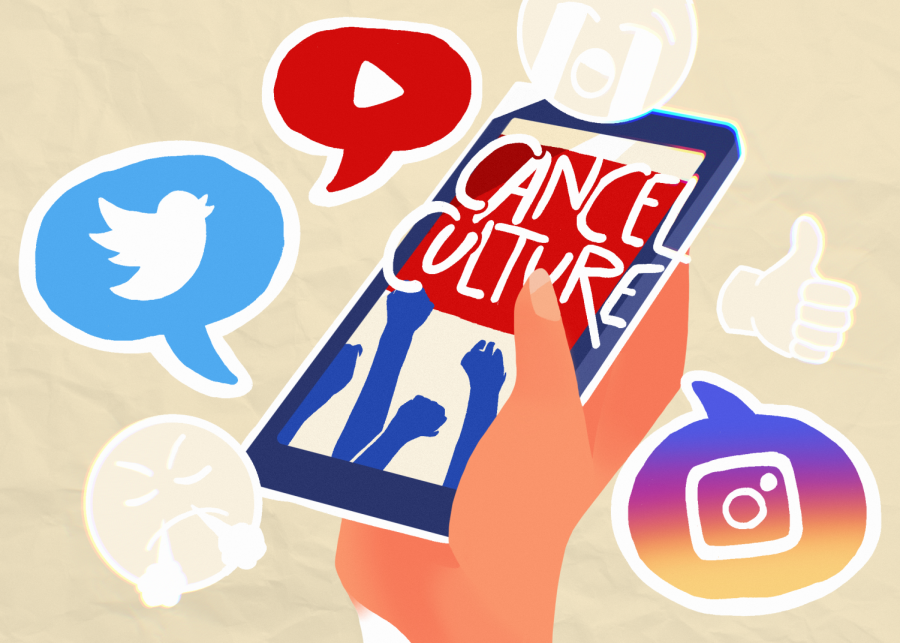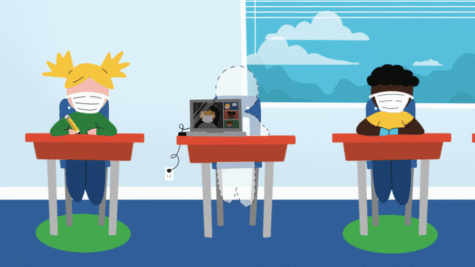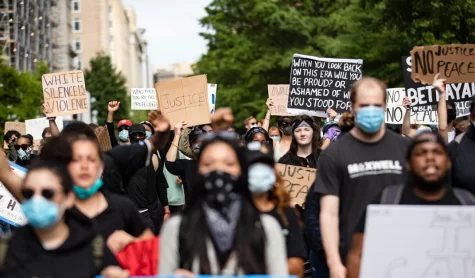Accountability or Conformism?
“Little by little and without warning, do-gooders and censorship have taken control, obsessed with their image of being justice-bearers, a whole generation without experience or culture attempts to impose on the rest of us their incommodious ideologies.”
So said supermodel and former French first lady Carla Bruni on April 17 as she railed against what she believed to be a society now stifled of creativity and humor as she paid tribute to two French comedians, Michel and Pierre whom she states represent a different time when liberty and freedom of expression were valued.
She laments that since their passing, we are being regulated and surveilled for every remark we make and everything is taken to offense while the benefit of the doubt no longer prevails. Thus, Carla believes that individuals no longer dare to express precisely what is on their minds in fear of retribution from the angry Twitter mob, always anticipating their next cancellation.
Cancel culture is known as the phenomenon by which celebrities, corporations, institutions, and at times ordinary people are shunned and ostracized due to a remark, action, or slight perceived to be racist, sexist, xenophobic, homophobic etc.
Others believe that the whole outrage over cancel culture is merely a fabrication of the mind meant to delude oneself into a concocted reality of victimhood while transgressors are finally being held to account. As LeVar Burton mentioned on the View recently, “I believe we have a consequence culture, and that consequences are finally encompassing everybody in this society.”
Thus, even the name is being debated. Is it cancel culture or is it accountability culture?
San Ramon Valley High School junior Emma Morrow views cancel culture as “a practice that is dangerous to self-expression, free speech, and freedom, and can harm individuals on social to professional levels. It is essentially shunning, where an individual is placed in exile because of an unpopular belief or opinion they hold or because of a mistake they have made. Cancel culture diminishes a person’s value and worth to a minute thought or past action.”
On the other hand, Evie, a sophomore at San Ramon High who doesn’t want her full name to be named because her parents have instilled in her the importance of internet safety, says the purpose of cancel culture is that you are “being held accountable for your actions.” She states that some will say, “‘Oh, they got wrongfully cancelled’ but it was a racist thing. You’re supposed to be held accountable for things that are racist. If it affects a certain group of people, listen to how they feel and how it affects them.”
Essentially, Evie believes that “times are changing, and people are being held accountable for actions for which they weren’t before.” Ultimately, this new shift in society that propels people to toe the line on potentially triggering or offensive remarks is a step in the right direction to ensure respect for a diverse group of people.
Sofia Couture, a San Ramon senior, sees the issue similarly and agrees that “people definitely face more consequences for their wrongdoings”, but voices concern for the extent to which cancel culture is employed, saying that “I think some complaints about cancel culture are justified because people sometimes take it too far, especially when someone gets ‘cancelled’ on social media. They try to ruin that person’s life forever so I believe that it can be an issue sometimes.”
Do celebrities and even ordinary individuals deserve to lose their jobs, their credibility, and their friends over a perceived or real slight?
Evie brings up the case of the Colorado baker who refused to bake a wedding cake for a gay couple. She asserts that “No one should lose their livelihoods, but being a bad homophobe should never be allowed. I see that someone lost their job because they said something super racist, and it could be well deserved.”
Although proponents assert that cancel culture has somewhat heightened awareness of prejudices and biases and the need to be self-conscious about what we say, critics argue that cancel culture has only closed the doors for open debate.
A recent internal survey of New York Times employees revealed that 51% of the staff responded affirmatively to the following statement: “There is a free exchange of views in this company; people are not afraid to say what they really think.”
However, Evie responds that “If they’re afraid of cancel culture, they probably deserve it, which means that [cancel culture] is working. That means you’re not going to be horribly offensive in a newspaper, and that’s good. … It’s good to think before voicing your opinions.”
Therefore, the question is whether teens, who might soon be sitting in NYT newsrooms, feel they are unable to express themselves honestly.
Esha Varakur, an SRV senior, has a more nuanced outlook: “I don’t think teens are hesitant to voice their opinions in fear of being cancelled but I think cancel culture has made teens more prejudiced and more likely to jump to conclusions easily. They’re not as tolerant of opinions that are different from their own and are ready to ‘cancel’ others with different points of views without spending enough effort looking into the opinions themselves.”
Sofia voices a similar opinion, saying that “ Overall, I think that there is less toleration of differences and people all want conformity.”
Emma maintains that “people working for news publications should not have to walk on eggshells to present various ideas — that undermines the entire premise of reporting and the op-ed page, which is aimed at sharing information and different perspectives in order to let the audience decide their own opinion.”
Examples like the firing of NYT editor James Bennet over the publication of Senator Tom Cotton’s Op-Ed “Send in the Troops,” which argued in favor of peaceful protests while advocating for military reinforcements to reign in the riots that left many dead, reinforces the belief for Morrow that cancel culture has real-life implications for anyone who doesn’t toe the line of political correctness: “In the end, the NYT’s blacklisting of their own editor for publishing an opinion article that some find unacceptable is contrary to ideals of a free press and stifles open debate.”
Ultimately students are conflicted over the potential long-term effects of cancel culture.
Some, like Evie, are enthusiastic about the shift that this new culture of accountability has brought. Evie states that “A lot of people are more respectful of others, more accepting. You don’t want anyone to feel unsafe at school or where they work. I think it’s made a more welcoming environment. Although some people argue for freedom of speech, freedom of speech doesn’t mean freedom from consequences.”
Esha, like others, views cancel culture as a force for bad, asserting that “I think it promotes negativity more than anything else.”
Emma contends that cancel culture poses a danger to American institutions, stating that “America and our system of democracy stands to lose in the face of cancel culture. America is not just a country, it is an idea. We are special and unique because of our system of democracy, freedoms, Bill of Rights, and especially the First Amendment. A foundational principle of America is that everyone has the right to free speech, and through the open and honest exchange of ideas in the public forum, citizens are democratically able to choose their own path. In contrast, cancel culture aims to eliminate free speech and the free exchange of ideas that some deem unacceptable. … The result of cancel culture is destruction of the ideals that are the foundation of American democracy.”
Then there are those who are either simply indifferent or unsure of what cancel culture may affect. Although Sofia is not a proponent nor critic of cancel culture, she believes that the ostracization of a celebrity, boycotting of a company, or firing of an ordinary person does not lead to the substantial change that cancel culture proponents claim it does.
“I don’t really support any ‘cancelling’ of a person because I don’t think that this will prevent that person from doing the same action again; most of the time people just get cancelled but they don’t really change or learn from their mistakes because nobody educates them on why what they did was wrong,” Sofia said. “Overall, I don’t believe that somebody ever gets truly ‘cancelled’ especially if we talk about celebrities or whatsoever because somebody will support them anyway so it’s best to spread awareness about things to not say and do.”
Perhaps the idea of cancel culture is muddled again by an incident that occured recently and is still hotly contested on Twitter. Chrissy Teigen, a model and the opinionated wife of singer John Legend, has been made to bear the brunt of social ostracization.
Teigen’s cooking line was removed from Target and Macy’s soon after conservative activist Candace Owens shed light on Teigen’s former tweets that called for Courtney Stodden to commit suicide along with numerous other tweets from Teigen that disparage other public figures.
On one hand this seems like an ordinary “cancellation” but then again, Teigen has been hailed by supporters as someone who has helped ensure accountability and disparaged by others who decry her as a bully who castigated and “cancelled” countless individuals, notably conservatives, Republicans, and the Trump family.
Owens herself has railed against cancel culture and condemned the lack of grace and forgiveness in society. By pulling out tweets from more than 10 years ago, Owens is now blasted by some as contributing to this toxic environment where sinners are deprived of second chances.
Is accountability finally coming back to bite Teigen or is Owens simply an obnoxious hypocrite? Who is truly for cancel culture and who is truly against cancel culture? The tides never cease to change.









